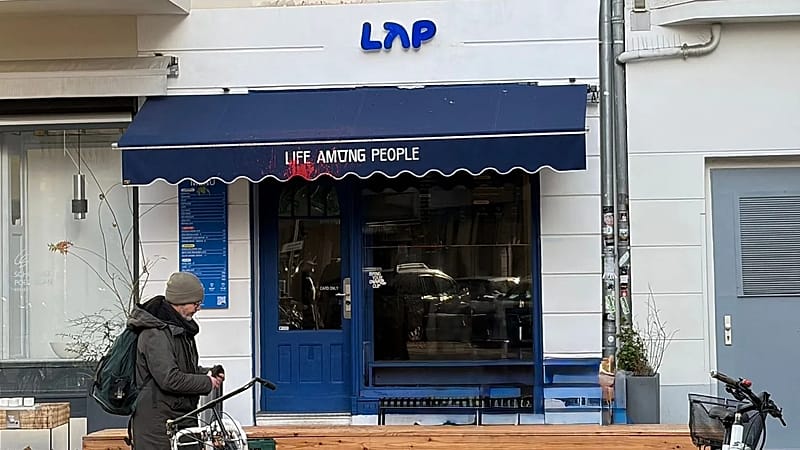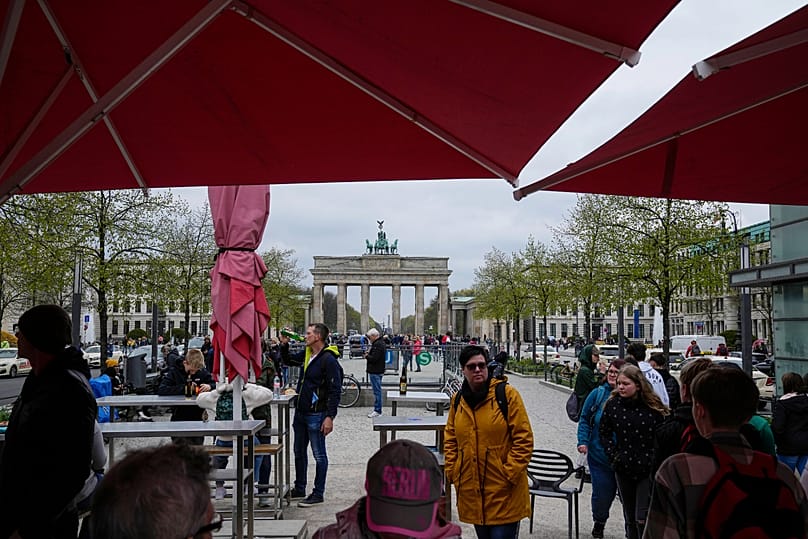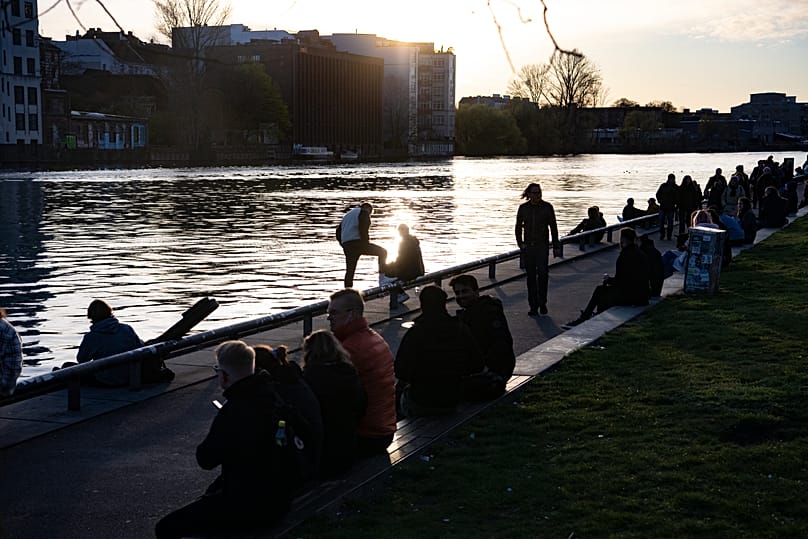Cappuccino for €2.50? Affordable café chain LAP divides Berlin over coffee prices

A fast-growing coffee chain selling cappuccinos for €2.50 has sparked fierce debate in Berlin, with local café owners warning of displacement and activists attacking branches with paint.
Life Among People or LAP Coffee, founded by former Delivery Hero executive Ralph Hage and ex-Flink employee Tonalli Arreola, has opened 24 branches in Berlin, Hamburg and Munich since launching in 2023.
The chain's low prices — roughly half what many Berlin cafés charge — have drawn both customers and criticism.
Several LAP branches in Berlin were targeted with red paint in late October. Police confirmed incidents at four locations across Prenzlauer Berg, Mitte, Kreuzberg, Schöneberg and Kantstraße, where windows and facades were sprayed and flyers left behind.
Café owners fear pressure on local businesses
Some operators near LAP branches report falling sales in takeaway coffee.
Philipp Reichel, who runs Isla Coffee in Neukölln, told regional broadcaster rbb he was concerned about the pricing strategy. "We've been trying for years to show how valuable coffee is and why it has its price," he said.
Reichel warned the chain would continue expanding and draw walk-in customers away from established shops, particularly in busy locations.
In touristy districts such as Mitte and Prenzlauer Berg, coffee prices have risen to as much as €6 in recent years. Meanwhile, LAP charges €1.5 for an espresso, €3 for a flat white, and €4 for a matcha latte, one of its most expensive offerings.
A website called "lapcoffeescheiße" has published allegations against the company, including claims of exploitation, obstruction of union formation and aggressive use of customer data.
The group, which describes itself as urban activists opposed to high rents and displacement, did not provide evidence for its claims when contacted by Euronews, instead referring to a ZDF programme on gentrification.
The group demanded Hage donate 80% of his fortune to co-determination structures in companies before they would meet with him, citing what they called systematic anti-union practices at Red Bull and Delivery Hero, where the founders previously worked.
No connection has been established between the website and the paint attacks. The operators denied involvement but said the campaign had drawn attention to concerns about LAP.
Affordable coffee harms no one, founder says
Hage told Euronews there were no big tech companies behind LAP and the chain was not seeking a monopoly.
"We compete with chains and capsules (and) pods while having no interest in harming the local coffee scene," he said, arguing that affordable coffee increases overall demand and brings more activity to streets.
He said the company was addressing environmental concerns by working with Berlin's waste management service to install more bins near shops, noting the city lacks sufficient waste disposal in some areas.
"I'm still trying to understand how a €2.50 cappuccino can cause such a stir in Germany," Hage said.
On the paint attacks, he said his staff had been unfairly affected. "Their workplace was attacked and damaged. I have great respect for how the team reacted."
More excitement than threat
Not all café operators share the concern. Leoni Lencinas, who runs Berlin breakfast café A Never Ever Ending Love Story, said competition was normal business practice.
"If a new shop opens across the street, you can get annoyed about it — but it doesn't get you anywhere," she said, adding that operators should focus on what makes their business distinctive.
On criticism of the founders' financial resources, she said: "Everyone is free to pitch an idea and find investors. In the business world, it is normal for some concepts to be more successful than others."
"In hindsight, you always think 'I could have come up with that idea'. But you didn't."
Reichel acknowledged the competition could serve as motivation. "It's also a wake-up call. We need to look at how we can make our processes more efficient and more digital," he told rbb.
Brand researcher Arnd Zschiesche told NDR he saw no acute danger for independent cafés, saying LAP serves a different target group. "It is designed completely differently to the typical neighbourhood café, which has organically built up a clientele over the years," he said.
LAP's 24 branches represent a small fraction of the overall market. Berlin has more than 1,100 cafés, Hamburg around 500 and Munich nearly 450.
Hage said the Berlin market was diverse, ranging from brunch cafés to bakeries. "Each serves a different audience and offers a different experience. LAP is for people who want a good coffee quickly at a fair price," he said.
This text was translated with the help of artificial intelligence and reviewed by our editorial team. Report a problem : [feedback-articles-en@euronews.com].
Today



